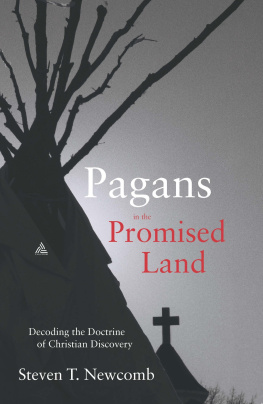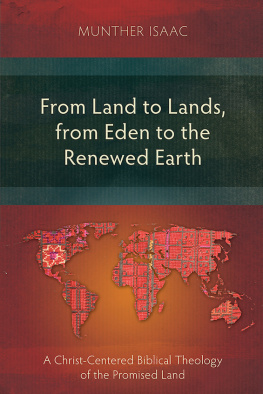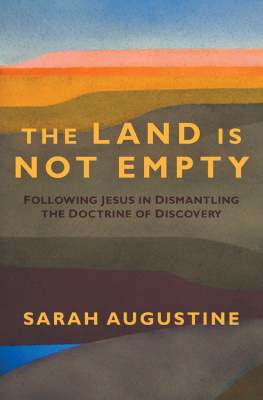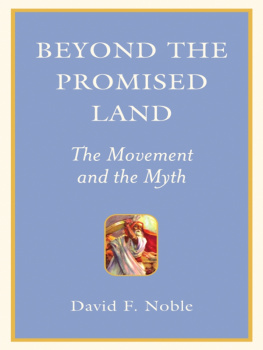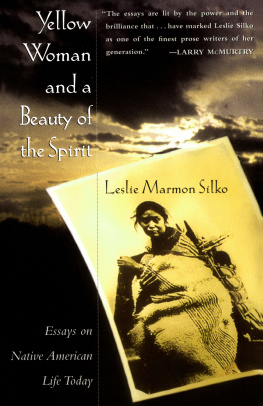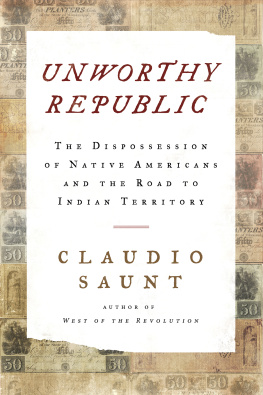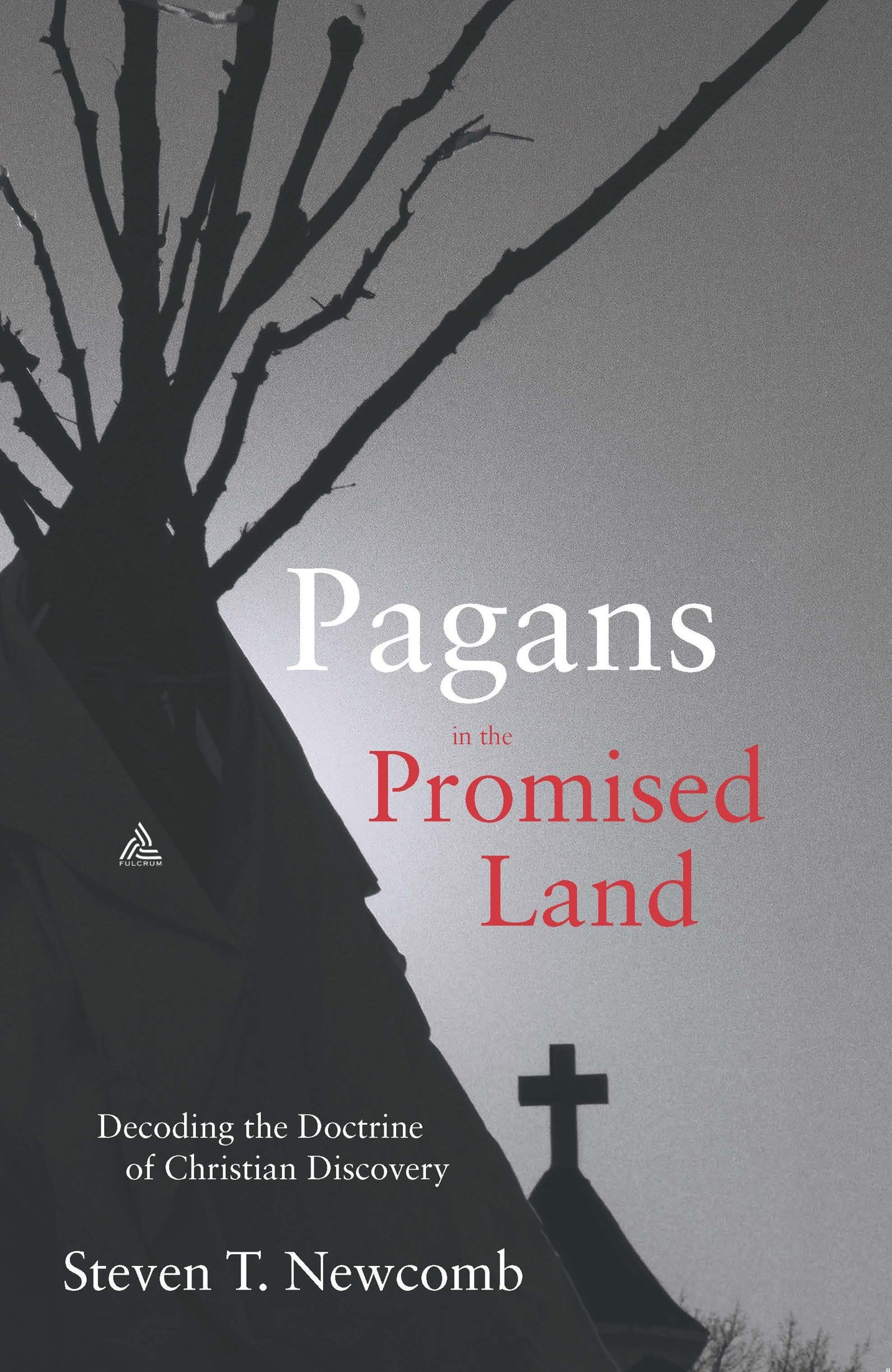Decoding the Doctrine
of Christian Discovery
Steven T. Newcom
2008 Steven T. Newcomb
All rights reserved. No part of this book may be reproduced, stored in a retrieval system, or transmitted in any form or by any means, electronic, mechanical, photocopying, recording, or otherwise, without written permission from the publisher.
Library of Congress Cataloging-in-Publication Data
Newcomb, Steven T.
Pagans in the promised land : decoding the doctrine of Christian
discovery / Steven T. Newcomb.
p. cm.
Includes bibliographical references and index.
ISBN 978-1-55591-642-8 (alk. paper)
1. Indians of North America--Legal status, laws, etc. 2. Land
tenure--Law and legislation--United States. I. Title.
KF8205.N48 2008
346.73043208997--dc22
2007039833
Printed on recycled paper in the United States of America by
Malloy Incorporated. Fulcrum Publishing is a member of the
Green Press Initiative.
0 9 8 7 6 5 4 3
Designed by Jack Lenzo
Cover photograph: We Gather Together Cara McDonald
Fulcrum Publishing
4690 Table Mountain Drive, Suite 100
Golden, CO 80403
800-992-2908 303-277-1623
www.fulcrumbooks.com
In Honor of Tecumseh
Foreword
The formative influence of Christian doctrines on U.S. law was once clear and unambiguous. Religious dogmas of fifteenth-century Vatican papal bulls were deployed as the foundation of property law, nationhood, and federal Indian law in the early nineteenth century. Court decisions bound U.S. law to the world of Christendom and Christian imperialism. This process was not hidden or mysterious, nor was it a conspiracy among judges and priests. It was long-range planning for the takeover of a continent and a hemisphere. It was the theory that guided colonial practices. It is the story of Pagans in the Promised Land .
Before we go further, let us distinguish some core terminology. There is a difference between Christ and Christianity: the former is a title given to Jesus of Nazareth by those who believe him to be the Messiah of the family of Abraham; the latter is the teachings these believers produced over many years in the institutional development of their church. Christianity, the belief system of the church, is different from Christendom, which is an amalgamation of churches and states. Christendom consists of alliances among secular princes and priestly authorities; it culminates in the doctrine of divine right of kings and popes.
When we make these important distinctions, we can begin to understand the possibility of differences between the teachings of Jesus and the political and legal doctrines of a church-state complex operating in his name. Jesus is not reported as having ever uttered any words about American Indians, but the official organizations of Christendom most certainly did utter words and enact laws and policies affecting Indians, from the time of first contact to the present. As Newcomb demonstrates, the doctrines of Christendom informed the thinking of jurists and other lawgivers who created property and federal Indian law.
To put it in a nutshell, Pagans in the Promised Land is not an attack on Jesus or Christianity. It is a careful and impassioned exploration of the ways that federal law relating to property, nationhood, and American Indians grew from Christendom. The basic story holds true if we reverse Newcombs formulation, that Christendom is an aspect of federal Indian law, and say that federal Indian law is an aspect of Christendom. To be specific, property and federal Indian lawthe body of rules created by the U.S. government to define the indigenous peoples of this continent, their land rights, and the land rights of the colonizersis a continental manifestation of the world-historical mission of Christendom: to bring all Creation into its domain.
I emphasize these distinctions to help readers who are unfamiliar with the history of church and state to get past resistance to the charge that Christendom is linked to colonialism and oppression. Readers familiar with Vine Deloria Jr. and God Is Red will have an easier time with this material because they will already distinguish between religion and spirituality. The point here is for the reader who is sensitive to Christian teachings about Jesus to be open to learning about the problematic history of Christendom in relation to U.S. law.
One more distinction is necessary, to help us understand what Newcomb means when he writes that federal Indian law is the result of the white mans imagination. This is not a statement about skin color. It is a statement about demographics and the historical development of a conceptual framework. Indeed, the white mans imagination has spread to the minds of many who are not white. The target of Newcombs critique is a metaphorical, rather than a literal, whiteness. Its about a way of thinking, not about the color of the people who think that way.
We may ask about the apparent acquiescence of so many indigenous peoples to the white mans imagination: Did not Indians sometimes willingly accept the rules of their discoverers? Is this evidence that there was no oppression? The best response is to look at the demographics of discovery. As Charles C. Mann documents in 1491: New Revelations of the Americas before Columbus , the colonial projects of discovery were not possible until indigenous peoples had been decimated by strange diseases, their social relations disrupted and destroyed by widespread death.
From the viewpoint of cognitive theory, which Newcomb utilizes throughout his analysis, we may use Steven L. Winters terminology to say that the sedimented tacit knowledge and cognitive structures of social meaning of these peoples were nearly rendered obsolete by the devastation. The invaders worldview filled the deep gaps that had opened in their cultures.
Newcombs use of cognitive theory stirs up the deepest parts of todays conventional thinking about law, the sedimented tacit knowledge and cognitive structures of social meaning of twenty-first-century American life. These are the deep layers of consciousness that support our everyday understanding and involvement with legal institutions.
Cognitive theory also suggests that people resist challenges to their worldview unless or until it is obviously not functional. The question is whether and to what extent federal Indian law is no longer functional. The fact that federal Indian law is widely, almost universally, acknowledged to be riddled with contradictions does not mean it is perceived as not functional. Many areas of law carry built-in contradictions, but these areas are accepted and maintained because they solve discrete disputes, even if they cannot be satisfactorily explained in theory.
Dysfunction in federal Indian law is evident from several perspectives. Indigenous peoples throughout the Americas are asserting self-government, directly challenging claims of state sovereignty. State and nonstate entities are responding, sometimes violently, with efforts to assimilate indigenous peoples into standard state structures. International organizations, notably the United Nations Permanent Forum on Indigenous Issues, are taking up these matters of self
government and forced assimilation, questioning existing doctrines and practices. Indigenous peoples issues are a major part of the global movement toward expanding human rights that is challenging conventional understandings of government.
Newcomb challenges us to accept the effort of rethinking federal Indian law, land rights, and Indian nationhood. If we are surprised or angered by what his research has found, we must work through these reactions to study the documents he presents. This is a book to study, not simply to read. It cracks the code that explains the seminal U.S. Supreme Court case Johnson v. MIntosh , in which Indian occupancy and discoverers title intersected. Newcombs analysis of this cornerstone of U.S. law raises the stakes of legal analysis far beyond antiquarian concern for old cases. His work of decoding is akin to Michel Foucaults archaeology of knowledge: It is not the history of the past but the history of the present telling us where we are in the law of property and nationhood and how we got here.

